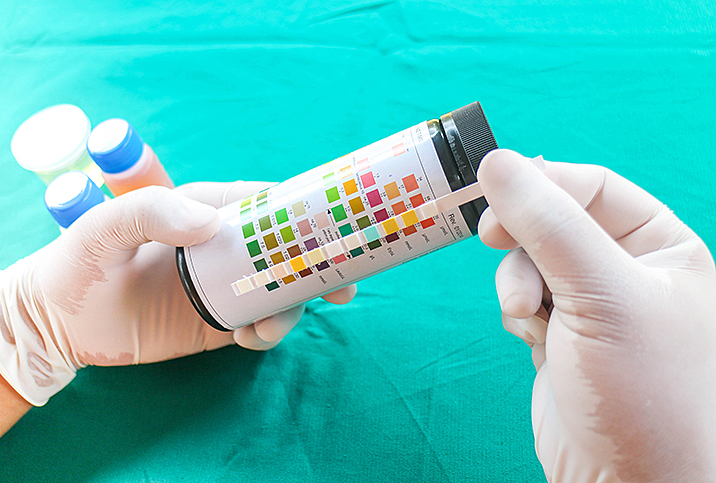Navigating Sex With a Yeast Infection

Notorious for its furious itchiness, a yeast infection can feel like a nightmare for anyone with a vagina. Contracting a yeast infection can be embarrassing, but they are nothing to be ashamed of.
While they will temporarily cut off your sex life during the healing process, yeast infections do not have to be a permanent block.
What causes a yeast infection?
This infection is common. Approximately three out of four women contract a yeast infection in their lifetime, shared the Mayo Clinic. Yet, this condition remains heavily stigmatized and rarely discussed openly.
"Yeast infections are caused by a type of fungus called Candida," explained U.K.-based general practitioner Jeff Foster, M.B.Ch.B. "We all have small numbers of Candida on our skin and do no harm. But if you are run down or have other medical problems, they can multiply. This causes a yeast infection."
"Changes in the environmental conditions of the vagina can be led by hormonal changes, as in pregnancy, use of hormonal contraception, hormonal replacement therapy, medications, and a weakened immune system," explained Hannah Nazri, a U.K.-based OB-GYN resident and academic clinical fellow at the University of Warwick.
Yeast infections love moist conditions.
Otherwise known as vaginal candidiasis or thrush, yeast infections love moist conditions. Yeast infections can also occur in other body parts, including wet areas like the mouth.
Those with vaginas usually experience symptoms of yeast infections such as:
- Abnormal vaginal discharge (often resembling cottage cheese)
- Vaginal itchiness and irritation
- Painful sexual intercourse
- Stinging sensation when passing urine
- Sometimes a rash in the vulva area
Symptoms of yeast infections vary between genders.
How long does yeast infection treatment take?
These infections are typically treated with over-the-counter creams or tablets. "Sexual partners are only treated if they, too, have symptoms," Nazri said.
Pregnant people, and those who have never had a yeast infection before, should seek professional advice before taking antifungal medication. Symptoms can mimic other health conditions.
Vaginal clotrimazole and miconazole are safe in pregnancy, but other treatments, such as a dose of fluconazole, can increase the risk of developing birth defects.
"Usually, it takes seven days for the infection to clear with treatment," Nazri continued. "It is important to complete the course of antifungal treatment even though your symptoms start to subside or disappear as you cannot be 100 percent sure that the infection has cleared to a point that there is no yeast overgrowth."
Can you have sex while you’re treating a yeast infection?
"The rule is if you've got any sort of vaginal problem, repeatedly rubbing something back and forth inside it is not going to make it better," Foster said. "Sex itself is something that is going to make most conditions worse."
You can, but you really shouldn’t, Nazri stated. It’s best to wait 7 to 10 days for the infection to clear before you engage in sexual activity.
"Sexual intercourse can exacerbate yeast infection as skin-to-skin contact can be painful with an already swollen and irritated labia or penis," she said. "Introduction of the penis, sex toys, finger or tongue into the vagina can insert new bacteria which will exacerbate the yeast infection."
Although sexual contact can worsen a yeast infection, they are not sexually transmitted infections (STI) and the likelihood of passing it on to a sexual partner is low.
'There is an increased risk of passing other forms of STIs in an already inflamed vagina and penis.'
"You cannot get a yeast infection from kissing or oral sex, but the presence of yeast infection in your mouth is indicative of a low immune system or as a side effect of steroid asthma inhalers that can be passed to your sexual partner if the conditions allow," Nazri said. "Generally, a yeast infection is not transmissible but there are rare occurrences when it can be," added Nazri.
Friction during penetrative intercourse may cause fissures, or tiny tears in the skin, which can bleed, and make it possible to transmit an infection. According to the Office on Women’s Health (OWH), although it is rare to transmit a yeast infection to someone with a penis, it can occur in 15 percent of those with a penis.
There is a higher risk of passing or contracting STIs during unprotected sex while you have a yeast infection.
"There is an increased risk of passing other forms of STIs in an already inflamed vagina and penis," Nazri said. "Penis-in-vagina sex can push ointment or cream base yeast infection medications out of the vagina. These medications may also contain oil that erodes latex condoms or diaphragms.”
That erosion could lead to an unplanned pregnancy.
How long should you wait to have sex when you’re treating a fungal infection?
Ideally, anyone with a yeast infection should refrain from sexual contact until the infection, and any associated symptoms, are completely gone.
Open communication with current or prospective partners can save you discomfort and awkwardness. A vaginal yeast infection is nothing to be ashamed of.
There is no way to speed up the healing process. Despite prevailing myths associating probiotics, particularly yogurts or remedies such as boric acid, with vaginal health, there is a lack of high-quality evidence linking probiotics with improved vaginal flora.
You can try to prevent yeast infections (and keep your current infection from getting worse), by avoiding perfumed or scented soaps to clean the vaginal area. Dry the genital area after washing, change out of sweaty clothes quickly and choose breathable cotton underwear.
The bottom line
Developing a yeast infection may end sexual activity for a week to 10 days, but healthcare professionals recommend waiting. Use that time to build intimacy in non-penetrative ways while you wait for your antifungal medication to clear your infection.


















